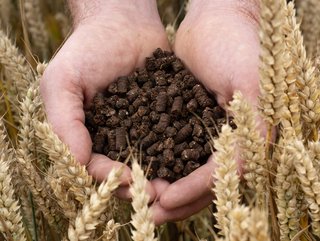Nestlé & Cargill use cocoa shell in new lowcarbon fertiliser

Approximately 5% of global greenhouse gas (GHG) emissions are currently produced from the production and use of conventional fertiliser, and more than half of the carbon footprint of wheat grown in the UK is related to fertiliser use.
Nestlé UK & Ireland and Cargill have partnered to develop innovative solutions in regenerative agriculture. The initiative — a UK supply chain trial — aims to assess whether cocoa shells from a confectionery site in York could be used to create a low carbon fertiliser.
The trial to evaluate the fertiliser’s performance on crop production, soil health and GHG emissions reduction will last two years, and, if successful, could produce and offer up to 7,000 tonnes of low carbon fertiliser to farmers in Nestlé’s UK wheat supply chain. This amount of fertiliser equates to around 25% of Nestlé UK’s total fertiliser use for wheat.
“Farmers often find themselves to be among the first groups to be exposed to global issues, and these risks are then borne by the food system we all depend upon,” shares Matt Ryan, Regeneration Lead at Nestlé UK & Ireland.
“We have to find ways to build more resilience into the system and optimising our use of natural resources is a critical part of this.
“This project is a small, but very meaningful step towards a net zero future, where farmers, local enterprises, and nature all stand to benefit”
Reducing emissions across the supply chain
Cargill supplies the cocoa shells from its York facility where the shells are processed to become key ingredients in iconic products like KitKat and Aero.
Recycling valuable nutrients from waste streams within the food system provides a promising opportunity to create a lower emissions supply chain. Scaling up low carbon fertiliser production in the UK can provide farmers with a more sustainable product at a reliable price.
The trials, which were designed and are being overseen by York-based Fera Science Ltd, are currently taking place on arable farms in Suffolk and Northamptonshire. They are designed to investigate the performance of the fertiliser in terms of wheat yield and quality, as well as assess the impacts on soil biodiversity and GHG emissions in comparison to conventional products applied on the same farms.
“We have now finished harvesting and we’ve successfully grown a Winter wheat crop using this new fertiliser. We’ve compared two parts of the field, one which used the cocoa shell fertiliser, and one which used with the conventional fertiliser, and there is no significant difference in the yield so we can see that it works,” says Richard Ling, farm manager at Rookery Farm, Wortham in Norfolk, who supplies wheat to Nestlé Purina.
“We are really reassured with the results and are looking at running further trials. It’s a step change to be able to use a fertiliser made from a waste stream and see the same results as using a conventional product. It’s an exciting and promising time and we are pleased to be taking part in these trials to help reduce the carbon emissions from our farming.”
For all companies involved, the trial embodies their commitment to innovation, collaboration and sustainability throughout the supply chain. Alongside its pledge to net zero emissions by 2050, Nestlé has committed to sourcing 50% of its key ingredients from regenerative agricultural methods by 2030 and this project is an example of the innovative solutions supporting the company on that journey.
“Cargill and Nestlé have been working together for more than 60 years building resilient supply chains across communities where we both operate. We are excited to continue to build on this strong partnership through our innovative cocoa shell fertiliser trial,” says Sam Thompson, Global Engineering Lead at Cargill Cocoa & Chocolate.
“Together, we hope to contribute to a more sustainable future for the British farming industry.”
*************************************************
For more insights into Sustainability - check out the latest edition of Sustainability Magazine and be sure to follow us on LinkedIn & Twitter
Other magazines that may be of interest - EV Magazine | Energy Digital
*********************************************
BizClik is a global provider of B2B digital media platforms that cover 'Executive Communities' for CEO's, CFO's, CMO's, Sustainability Leaders, Procurement & Supply Chain Leaders, Technology & AI Leaders, Cyber Leaders, FinTech & InsurTech Leaders as well as covering industries such as Manufacturing, Mining, Energy, EV, Construction, Healthcare + Food & Drink.
BizClik, based in London, Dubai & New York offers services such as Content Creation, Advertising & Sponsorship Solutions, Webinars & Events.






